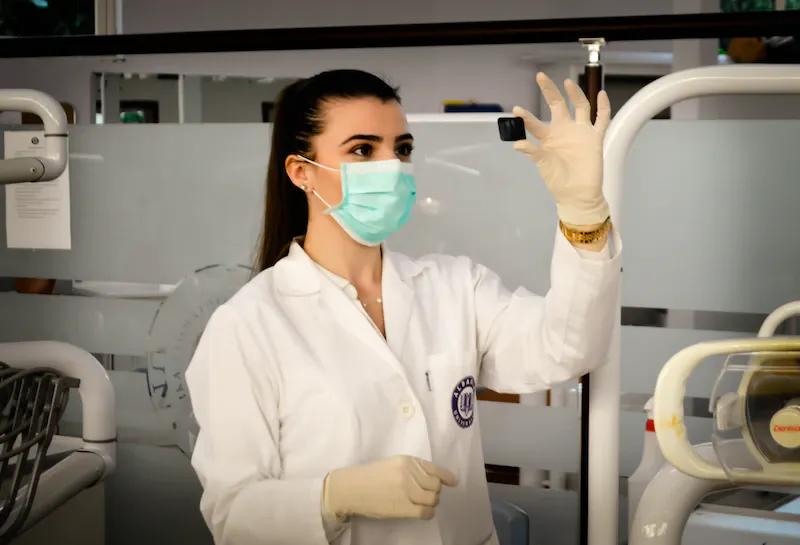Unlocking Your Sexual Potential: Why Adult Sex Education Matters

The Need for Sex Education Among Adults
Sex education is often thought of as something exclusively for young adults. However, as the speaker in the video script points out, many adults have questions about sex and sexuality that go unanswered. It’s not just a matter of satisfying curiosity, either. A lack of understanding can have real-world consequences on our health, relationships, and well-being.
One of the main issues addressed in the video is female sexual dysfunction (FSD). While the term may seem overly broad, research shows that a significant percentage of women experience symptoms that fall under the FSD umbrella at some point in their lives. For example, one in ten women have never had an orgasm in their lives. This statistic, designed by pharmaceutical companies trying to create a “female Viagra,” included everything from chemical changes in the body to changes in mood, stress, and relationships.
This is just one example of how sex education is needed among adults. Everyone has questions about sex, no matter their age or experience. Unfortunately, it can be difficult to find reliable sources of information. The internet is full of conflicting advice, and even sex therapists can be expensive or difficult to access.
Self-experimentation and trying new things is one way to learn more about our bodies and what works for us, but it’s not a magic bullet. The speaker emphasizes the importance of being open to new experiences and not getting stuck in habits and ruts. It’s okay to not know everything, and to continue learning and exploring. Ultimately, our sexual experiences are unique to us, and we must each navigate our own journey to discover what works best for us.
Female Sexual Dysfunction: A Common Issue for Women
Female Sexual Dysfunction (FSD) is a term used to describe various issues women may experience related to their sexual health. According to the video, approximately 43% of women at some point in their lives exhibit symptoms that fall under the umbrella of FSD. Some estimates even suggest that one in ten women have never had an orgasm in their lives. These statistics highlight the need for more education and awareness around FSD, as it is a common issue that can greatly impact a woman’s quality of life and her relationships.
The definition of FSD can vary widely, and it can be challenging to diagnose and treat. Some factors that can contribute to FSD include changes in a woman’s body, stress, depression, hormonal imbalances, and changes in relationships. However, the broad definition of FSD can sometimes lead to overdiagnosis and overtreatment, as seen with pharmaceutical companies attempting to create a “female Viagra” to solve all types of sexual dysfunction in women.
It’s important to note that FSD doesn’t just affect women in heterosexual relationships; it can impact anyone, regardless of their sexual orientation or relationship status. The lack of understanding and resources around FSD can have real-world consequences on a woman’s health, relationships, and overall well-being.
Overall, it’s essential to increase education and awareness around FSD, encourage women to seek professional help if they are experiencing sexual health issues, and reduce the stigma surrounding these topics. By doing so, we can help women lead happier, healthier, and more fulfilling sexual lives.
The Importance of Comfortable Sex Talk to Pass on to the Next Generation
Sex education is not only important for young adults but also for parents and adults. By being comfortable talking about sex and passing on accurate information, we can prevent the stigmatization and misunderstandings that often come with this topic. It’s crucial to create a safe and supportive environment for children to ask questions and get the right answers.
Unfortunately, not all parents are comfortable talking about sex with their children, and this can lead to misinformation and confusion. By educating ourselves about sex and sexual health, we can ensure that our children have the right information to make informed decisions.
Moreover, discussing sex should not be a one-time conversation. It should be an ongoing dialogue that evolves as children grow older and have more questions. This way, children can learn about sex and sexuality in a healthy and open environment, rather than from unreliable sources.
In addition, by being comfortable talking about sex, we can prevent the perpetuation of harmful stereotypes and taboos. If we can create an open and accepting environment around sex, we can ensure that our children grow up to be sex-positive and accepting individuals who are comfortable discussing sex and sexuality.
Overall, by being comfortable with sex education, we can ensure that our children have access to the right information and resources, and that they grow up to be healthy and informed individuals.
Difficulty of Discussing Sex in Society
Talking about sex in our society can be incredibly challenging. We often shy away from the topic because of the shame and stigma attached to it. Sex education in schools is often inadequate, leaving many adults feeling unsure and ashamed of their bodies and desires. As a result, people turn to unreliable sources of information such as the internet or friends, which can be misleading and confusing.
Moreover, many adults may find it challenging to seek help when it comes to sexual problems due to a lack of resources and a general discomfort with the topic. There is also a general misunderstanding around sex therapy and what it entails, which can make it hard for people to seek out professional help.
However, not talking about sex can have real-world consequences on our health, relationships, and overall well-being. By shying away from the topic, we perpetuate the stigma around sex and contribute to a lack of awareness and education on important issues like sexual health and consent.
It’s time to break the silence and start talking about sex in an open and honest way. This can start with simply having conversations with our partners, friends, and family. It can also involve seeking out reliable sources of information and professional help if needed. By normalizing the conversation around sex, we can create a more informed and educated society that values sexual health and well-being.
Teaching Sexual Anatomy and Terminology is not Enough
While it is important to understand the anatomy and terminology related to sex, it is not enough to have a healthy and satisfying sex life. In the video, the speaker explains that knowing the anatomy and terminology does not necessarily mean that people know how to communicate about sex or how to have a mutually satisfying sexual experience.
It is important to teach people how to communicate their wants and needs to their partner and how to create a safe and comfortable space for sexual exploration. This can be done through discussing boundaries and consent, as well as exploring different desires and preferences.
Additionally, it is important to recognize that everyone’s sexual preferences and desires are unique and can change over time. It is important to create a space where people can explore and experiment without fear of judgement.
Overall, while teaching sexual anatomy and terminology is important, it is crucial to also teach communication, consent, and exploration in order to promote healthy and satisfying sexual experiences.
Unique Sexual Experiences and Self-Discovery
Sexual experiences and self-discovery are unique to each individual, and it is essential to recognize and accept that everyone’s journey is different. Sexual exploration and experimentation can lead to better self-awareness and understanding of one’s own desires and boundaries.
Sexual exploration should be done in a safe and consensual environment, and individuals should be encouraged to communicate their needs and desires with their partners openly. Sex education should include topics on consent, communication, and the importance of boundaries.
It is also important to recognize that sexuality is fluid and can change over time. Therefore, individuals should be encouraged to approach their sexual experiences with an open mind and hug their changing desires.
In conclusion, sex education should not only focus on the basics of sexual anatomy and terminology but also emphasize the importance of self-discovery and sexual exploration. By creating a safe space for individuals to learn and ask questions about sex, we can help promote healthy attitudes towards sexuality and create a more sex-positive society.
The Role of Self-Experimentation in Sexual Satisfaction
Another important aspect of sexual education is self-experimentation. This means that individuals need to explore their own bodies and desires to figure out what works best for them. It is important to realize that not everyone has the same preferences, and there is no “right” way to experience sexuality.
Self-experimentation can involve exploring one’s body through masturbation or trying out different sexual activities with a consenting partner. This can help individuals figure out what feels good and what doesn’t, which is essential for developing a fulfilling sex life.
It is also important to note that sexual experimentation should always be done in a safe and consensual manner. This means that all parties involved should feel comfortable and respected, and that communication is key. If something doesn’t feel right or comfortable, it is important to speak up and make adjustments.
Overall, self-experimentation is a crucial aspect of sexual education because it allows individuals to discover their own unique preferences and desires. By doing so, they can achieve greater sexual satisfaction and enhance their overall well-being.
Continuous Learning and Exploration to Improve Your Sex Life
Learning about sex and sexuality is not a one-time event, but a lifelong journey of discovery and exploration. In order to improve your sex life and maintain healthy sexual relationships, it is important to continuously learn and explore.
One of the best ways to learn about sex is by talking openly with your partner(s) about your desires, preferences, and boundaries. This can involve having difficult conversations and being vulnerable with one another, but it is an essential component of building a healthy and satisfying sexual relationship.
Another way to improve your sex life is by seeking out new experiences and trying new things. This can involve experimenting with different sexual positions, exploring new fantasies, or introducing sex toys into your routine. However, it is important to communicate openly and obtain enthusiastic consent before trying anything new.
Finally, it is important to recognize that sexual preferences and desires can change over time, and that it is normal to experience fluctuations in your libido and sexual interests. By maintaining an open and curious attitude towards sex, and continually learning and exploring, you can continue to improve your sex life and maintain fulfilling sexual relationships.
Conclusion
Sex education is a vital aspect of personal growth and development. In this blog post, we have explored various topics related to sex education among adults, ranging from the need for sex education to female sexual dysfunction and comfortable sex talk. We have also touched upon the difficulty of discussing sex in society, the importance of teaching sexual anatomy and terminology, and unique sexual experiences and self-discovery. Additionally, we have discussed the role of self-experimentation in sexual satisfaction and the significance of continuous learning and exploration to improve your sex life.
It is clear that sex education is an ongoing process that requires effort and commitment. While it may be challenging to talk about sex openly, it is essential to create a safe and comfortable space to discuss the topic freely. This includes teaching accurate and comprehensive information about sexual anatomy, sexual health, and healthy relationships.
Moreover, it is necessary to recognize that each person’s sexual experience is unique, and self-discovery is a crucial aspect of exploring one’s sexuality. While self-experimentation can be a valuable tool in achieving sexual satisfaction, it is important to prioritize safety and informed consent.
Overall, sex education is an essential part of our personal growth and development as sexual beings. It is vital to have a supportive environment that encourages open communication, self-exploration, and continuous learning to ensure that we have fulfilling and healthy sexual experiences throughout our lives.




